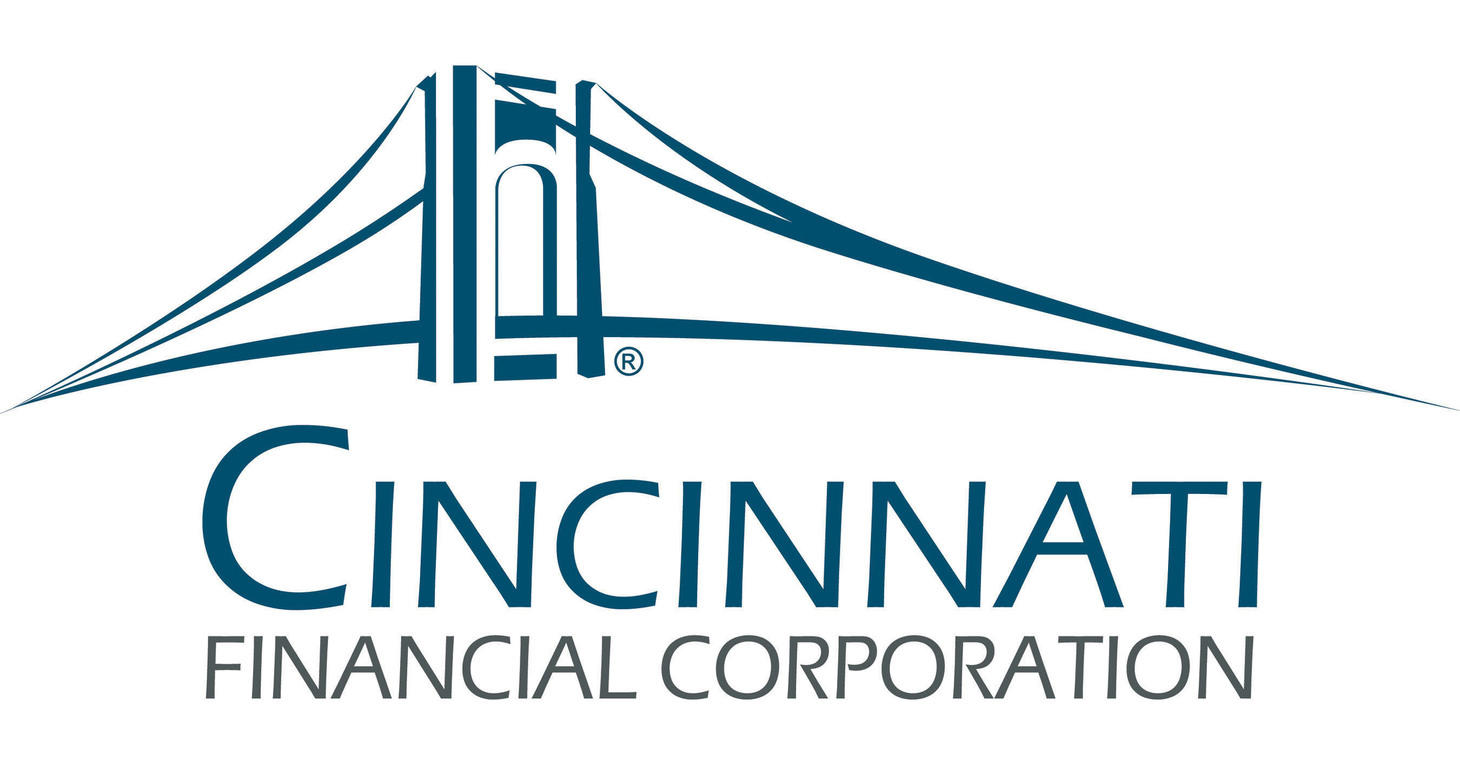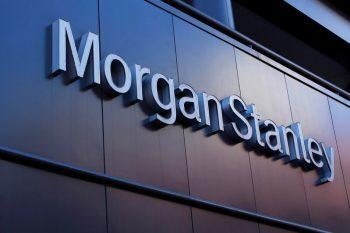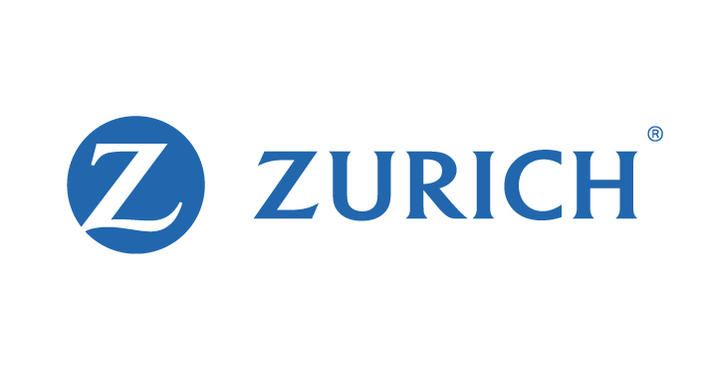Financial Results

Cincinnati Financial Corporation Declares Regular Quarterly Cash Dividend
Cincinnati Financial Corporation (Nasdaq: CINF) announced that at today's regular meeting, the board of directors declared an 87 cents-per-share regular quarterly cash dividend. The dividend is payable January 15, 2026, to shareholders of record as of December 22, 2025.
Stephen M. Spray, president and chief executive officer, commented, "From our roots as a small, agent-founded insurer to a company with deep financial strength and a track record of profitable growth, the principles established at our founding 75 years ago still guide us today. This dividend declaration is a tangible demonstration of our board's confidence in our capital position and in our operational performance. Our goal remains consistent: deliver steady value to our shareholders while supporting our agents and maintaining a disciplined approach to managing risk."
News

Commercial Insurance Market Softens in Q3 as Competition Heats Up
The commercial property & casualty market showed clear signs of softening in the third quarter of 2025, with average premium increases slowing to just 1.6%—the lowest in 32 quarters—driven by intense carrier competition, according to the latest Commercial Property/Casualty Market Index from The Council of Insurance Agents & Brokers.
The third quarter’s average premium increase was 57% lower than the 3.7% average increase recorded in the prior quarter, with increases moderating significantly across all account sizes, according to the CIAB’s quarterly survey of member firms.
For the first time in years, premium hikes for small, medium, and large accounts were all below 2%. Small accounts saw the most pronounced change, with average premiums up 1.2% after a 4.2% jump in the previous quarter. Medium accounts rose 1.9%, down from 4.0%, and large accounts climbed 1.6%, compared with 2.9% in Q2.
One survey respondent from a large Northwestern brokerage firm attributed the decline in premiums for small accounts to carriers being “aggressive towards small business for a while.”
Competitive pressure was a common theme, with respondents noting that carriers were more aggressive in winning new business, the report said.
The number of lines experiencing premium decreases expanded to six from five in the prior quarter, now encompassing business interruption, commercial property, cyber, directors and officers liability, employment practices and workers’ compensation.

Morgan Stanley expects P&C pricing to face continued pressure at Jan renewals
Morgan Stanley analysts expect property & casualty reinsurance pricing to continue facing pressure heading into January 1, 2026 renewals, following a similar trend to 2025.
Reinsurance pricing continued to soften, reflected in weaker top-line growth across most of Morgan Stanley’s coverage. Analysts expect rates at 1.1 to decline roughly 10–15%, driven by the benign hurricane season in the third quarter of 2025 and an ample build-up of reinsurance capital.
Despite overall pressure, reinsurers still view property-catastrophe as attractive, while casualty lines, particularly excess casualty, are seeing rate increases above loss trends.
2025 began with the California wildfires, resulting in notable catastrophe losses in Q1’25. However, Q3’25 saw very low catastrophe activity, with hurricane-related losses coming in well below expectations. Analysts noted that loss-affected accounts from catastrophes such as wildfires could see price increases heading into 1.1, partially offsetting market weakness. Given continued pricing pressure, analysts emphasised the growing importance of underwriting discipline in sustaining returns.
Reinsurer results in Q3’25 were broadly solid due to the lack of major catastrophes. Arch delivered strong underwriting performance across segments, Hamilton benefited from growth and investment gains, and RenRe progressed on its Casualty & Specialty improvement plan.
Allstate's latest trademarks focus on deductible payments
Allstate is assembling a several branded options around how customers pay their deductibles.
On November 13, 2025, the insurer filed a cluster of intent-to-use trademark applications that all point to the same strategic direction: giving policyholders more flexibility in managing out-of-pocket costs tied to auto and home claims.
The new marks include Allstate Deductible Flex Plan, Allstate Fastfix Deductible Plan, Allstate Easy Pay Deductible, Allstate Splitpay Deductible Plan, Allstate Deductible Flexplay, Allstate Deductible Relief, and Allstate Deductible Payment Plan.
Each filing covers mobile software for viewing policy information, making payments and claims, choosing claim payment options, toggling deductible payment options, and accessing accident information. They also cover the insurance services themselves, along with cloud-hosted platforms for selecting and enrolling in plans.
All applications were filed on the same day, carry identical language, and are not yet assigned to an examining attorney.

Estimated cost to rebuild Baltimore bridge soars
The Maryland Transportation Authority announced late Monday that the updated cost to rebuild Baltimore’s Francis Scott Key Bridge is estimated to be between $4.3 billion and $5.2 billion.
Officials initially estimated the cost to rebuild the bridge at up to $1.9 billion, shortly after it was struck by the Dali containership last year and collapsed, killing six construction workers.
“Since then, national economic conditions have deteriorated and material costs have increased,” Gov. Wes Moore said in a statement. “At the same time, elevated costs have resulted from federal design and resilience standards,” he said.
The National Transportation Safety Board is set to vote on the probable cause of the incident at a hearing on Tuesday.
AkzoNobel, Axalta to merge creating $25 billion paint giant | Reuters
Key Points
- AkzoNobel shareholders to receive $2.5 billion dividend payout
- New group aims for 20% core profit margin
- Expected $600 million annual cost savings within three years
- New company to list on NYSE after initial dual listing
Dulux paint maker AkzoNobel (AKZO.AS), opens new tab said on Tuesday that it plans to merge with paintmaker Axalta Coating Systems (AXTA.N) in a deal that will create a combined company with an enterprise value of $25 billion.
The combined company will be initially dual-listed in Amsterdam and New York before moving to a single NYSE listing, and maintaining dual headquarters in Amsterdam and Philadelphia.
It will be led by current AkzoNobel chief executive Greg Poux-Guillaume as CEO.
Research
InsureMyTrip Expects Surge in Insurance Claims After Shutdown Travel Turmoil
After weeks of disruptions, airports are finally getting back to normal following the government shutdown. As airlines and federal agencies work through backlogs and staffing shortages, travel experts at InsureMyTrip anticipate a spike in insurance claims as frustrated travelers navigate the post-shutdown rebound.
InsureMyTrip, while not handling claims directly, is offering guidance to help travelers avoid common filing mistakes that can delay or even result in a denied claim.
Common Mistakes Travelers Make When Filing a Claim
Travelers are sometimes surprised and frustrated when their claim is denied. Here are the most common pitfalls:
- Assuming everything is covered: Travel insurance plans are not "catch-all" protections. Every policy has exclusions. It's important to read the fine print and understand the plan's terms.
- Insufficient documentation: Missing receipts, reports, or proof of expenses are among the most common reasons for denial.
- Delaying filing: Waiting too long to submit paperwork can result in a claim being ineligible under plan deadlines.
InsurTech/M&A/Finance💰/Collaboration
Federato Raises $100 Million Series D Led by Growth Equity at Goldman Sachs Alternatives - Federato
Federato, the AI-native platform that changes the way insurance work gets done, today announced it has raised $100 million in Series D funding led by Growth Equity at Goldman Sachs Alternatives, with participation from returning investors Emergence Capital, Caffeinated Capital, StepStone Group, and Pear VC.
This latest capital infusion reinforces a major shift in insurer sentiment away from an old core of legacy systems and towards a generation of software in tune with the AI transformation surrounding all of us.
> “Our diligence in P&C insurance revealed that Federato’s AI-native platform delivers a step change in ROI and efficiency compared to prior generations of core systems,” said Jade Mandel, Managing Director at Growth Equity at Goldman Sachs Alternatives. “Federato has built the full policy lifecycle solution the market has been waiting for, and we’re excited to invest in a company whose domain and AI expertise are already delivering measurable results for insurers.”
> “Executives use AI every day and have an intuitive understanding of what it should deliver. But they aren’t getting that from AI bolted on to legacy solutions,” said Will Ross, Co-Founder and CEO of Federato. “The rising demand for true AI-native capability has surprised even us, and this substantial new investment from Goldman Sachs will help us deliver what customers need.”'
Commentary/Opinion

Are Auto Insurers Now TOO Profitable? | Insurance Thought Leadership
Auto liability insurance is mandatory almost everywhere in the United States. Although few motorists question the product's necessity, many are anxious about paying for it due to the growing distrust of private insurers. Many policyholders feel uncertain about whether they can rely on their insurance carriers in their hour of need. Countless horror stories reinforce the perception that insurers would drag their feet when it's time to pay or unfairly deny valid claims altogether — and get away with it.
Significant rate hikes erode any remaining goodwill American adults have toward auto insurance companies. In a car-dependent society, being forced to spend more on an inescapable auto-related expense would leave a bad taste in people's mouths. Charging higher premiums is justifiable and even vital in many cases, but is the insurance industry blameless for the public's prevailing sentiment?
AN EPIDEMIC OF EXCESS PREMIUMS
Car insurers had windfall profits in 2020. The pandemic compelled different levels of government to impose lockdowns to help curb the spread of COVID-19, which reduced the number of miles driven. Less vehicular traffic meant fewer car crashes and insurance claims, shrinking insurers' risk exposure overnight.
The business shutdowns and stay-at-home orders caused by the coronavirus outbreak economically affected tens of millions of policyholders. In the spirit of solidarity, auto insurance carriers provided relief to customers.
In April, over 80% of insurers announced that they would rebate policyholders more than $6.5 billion over the next two months. State Farm credited customers an average of 25% of premiums from March 20 to May 31. American Family paid customers $50 for every insured vehicle in April. Farmers Insurance gave a discount of 25%, while Progressive refunded about 20% of all premiums paid for April and May.
In addition, many insurers temporarily paused policy cancellation due to nonpayment and waived late fees in the spring of 2020. Most premium relief programs ended in June, but some providers continued to entertain requests for flexible payment plans or similar concessions on a case-by-case basis. They were particularly considerate of financially distressed customers, especially those furloughed or laid off. READ ON
Jack Shaw serves as the editor of Modded
Telematics, Driving & Insurance
Progressive Insurance® Accident Response powered by Cambridge Mobile Telematics provides real-time crash detection
Progressive Insurance® Accident Response powered by Cambridge Mobile Telematics provides real-time crash detection
In-app safety feature can deliver help when drivers need it most
Progressive Insurance and Cambridge Mobile Telematics (CMT), the world’s largest telematics service provider, have collaborated to develop the carrier’s newest technology of Accident Response, a feature available to Progressive personal auto insurance customers. The crash detection and response feature is an available option in the Progressive mobile app. Today, over 1.5 million Progressive customers rely on Accident Response.
Accident Response combines CMT’s AI-driven DriveWell Fusion® platform with Progressive’s customer-first service model to offer post-crash support. The system can detect when a customer may have been in a major accident and reaches out to the driver to offer towing, emergency services, and support in opening a claim. If a driver doesn’t respond, the customer receives a call. When drivers reply to the alert, they can request emergency services or a tow truck can be dispatched.
“Accident Response can provide customers with peace of mind and assistance when an accident occurs,” said Jay VanAntwerp, Progressive Business Leader for Telematics. “It offers quick support, including contacting a towing service, calling emergency services, and helping to start a claim.”
Accident Response leverages smartphone sensors and machine learning to detect collisions, initiate communication with the customer and begin a claim—all seamlessly integrated into the Progressive app.
The feature will start an insurance claim automatically if a tow or ambulance is dispatched and can accelerate claims submissions.
Accident Response gives customers peace of mind by connecting them with help when they need it—and by automatically kick-starting the claims filing process when requested.
Predict & Prevent

Chubb and Whisker Labs Launch Smart Tech Partnership | North America Announcements | Chubb
Chubb, a world leader in insurance, today announced a partnership with Whisker Labs to provide its eligible homeowner insurance clients with Ting, an innovative home electrical fire prevention technology. This offering includes the Ting sensor and three years of fire prevention services, provided at no additional cost.
Electrical fires pose a significant risk for homeowners, often caused by unseen hazards within a home’s wiring system. Ting’s smart sensor, paired with a mobile app, is designed to detect these hidden dangers before they escalate. The sensor plugs into a standard electrical outlet, monitors for potential fire risks, and alerts both the homeowner and Ting’s Fire Safety Team when issues are detected.
"We understand how devastating electrical fires can be — not just in terms of property damage, but also the emotional toll they take on families,” said Jenny Naughton, Executive Vice President, Risk Consulting Officer, Chubb Personal Risk Services*. “By offering Ting's smart technology to our clients, we’re providing them with a simple and reliable way to identify hidden fire hazards before they turn into serious problems, ensuring they have an extra layer of protection for their homes and loved ones.
According to the U.S. Fire Administration, electrical malfunctions caused nearly 24,000 residential fires in 2023. Ting’s technology addresses this risk by detecting issues in home wiring, outlets, switches, and electrical panels, which are responsible for the majority of electrical fires. Ting has been shown to prevent four out of every five electrical fires, making it a powerful tool in reducing fire-related risks.
“We’re excited to collaborate with Chubb to bring Ting to even more homes,” said Bob Marshall, Whisker Labs Co-founder and CEO. “By helping families stay safe from electrical fires, this initiative demonstrates how Chubb utilizes data-driven loss prevention programs to serve as a valued partner to its personal insurance clients, agents, and brokers."

Zurich selects Arrowsight to help transform on-site construction safety across the U.S. with proven camera-enabled coaching solution
Workers' Comp claim frequency dropped over 50% in 3-year NYC pilot of Arrowsight; top contractors Skanska, Suffolk, Gilbane, Posillico and Tutor Perini attest that video analytics and coaching significantly enhance jobsite safety.
Zurich North America and Zurich Resilience Solutions (ZRS), leaders in construction insurance and risk engineering, announced today a strategic collaboration with Arrowsight, a safety technology company specializing in video-based behavioral modification and coaching analytics, to help protect workers and reduce claims on construction jobsites across the United States.
This agreement follows a multi-year pilot program in New York deploying Arrowsight cameras and coaching on eight large-scale general building projects plus one heavy-civil project, cumulatively valued at more than $2 billion. Arrowsight uses fixed-point cameras and human-led video review to flag both risky and exemplary safety behaviors each day on jobsites, enabling timely coaching and adjustments together with ZRS engineers.
The results of the pilot exceeded expectations, reducing Workers' Comp claim frequency—a key indicator of worker safety—by more than 50% consistently. It's why Zurich has selected Arrowsight as its exclusive provider of camera-enabled technology for construction jobsites, complemented by ZRS risk engineering, and is now offering the enhancement across the country. ZRS, in turn, has become Arrowsight's exclusive provider of third-party risk engineering services.
"This pilot was made possible by leading contractors who were willing to invest in safety with us in an innovative, unprecedented way," said Zurich Head of Construction Tobias Cushing. "The dramatic results underscore the power of combining human insight with technology to drive measurable change. We saw a virtual elimination of serious injuries and deaths on projects with Arrowsight. We want to get workers home safe at night, and reducing claims is a reflection of that."
